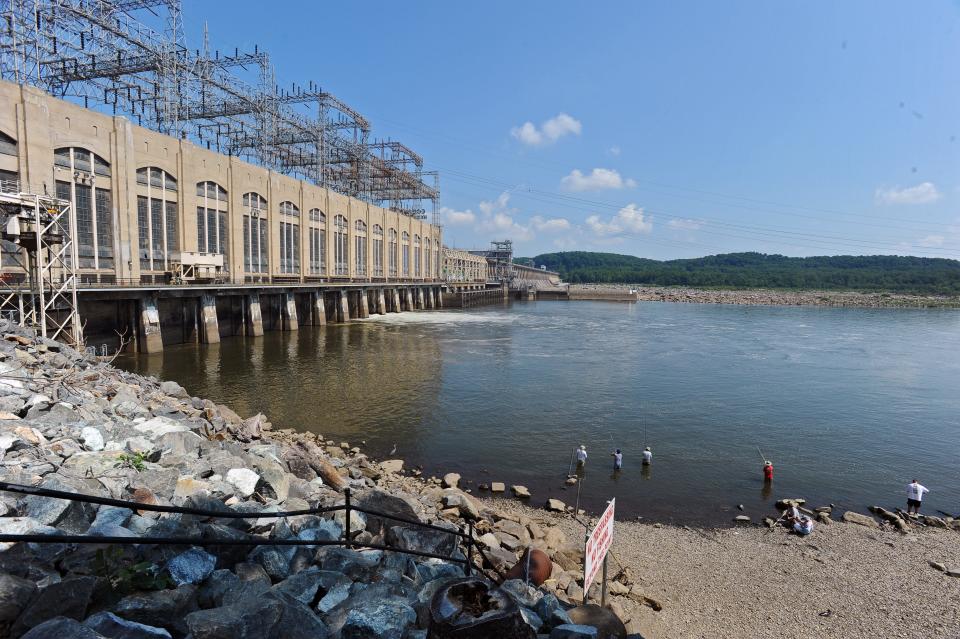Maryland's congress delegation adds voice to Conowingo Dam talks, seeking strict control
After the licensing agreement for Conowingo Dam was vacated by the U.S. Court of Appeals in 2022, Maryland's federal delegation is pushing for a much more stringent document to protect the Chesapeake Bay.
In a letter sent Tuesday to Maryland Secretary of the Environment Serena McIlwain by members of the delegation, they urged strong environmental protection measures for the Susquehanna River and Chesapeake Bay Watershed in the new licensing agreement the Federal Energy Regulatory Commission is considering for the dam.
Maryland senators and members of congress who signed the letter were U.S. Sens. Chris Van Hollen and Ben Cardin, and Congressmen Steny H. Hoyer, Dutch Ruppersberger, John Sarbanes, Kweisi Mfume, Andy Harris, Jamie Raskin, David Trone and Glenn Ivey.
"As you consider a new licensing agreement for Conowingo Dam, we write to urge you to pursue the best possible outcome for the health of the Chesapeake Bay and the Susquehanna River," the letter stated. "As you know, the Chesapeake Bay is both a national treasure and an economic engine for our region, and for decades the federal government and watershed states have worked together to clean up this vital resource."
Exelon, now known as Constellation, was originally tasked in the agreement with reducing the amount of nitrogen and phosphorus pollution that flows past the dam annually and eventually ends up in the Chesapeake Bay by millions of pounds
More on the court decision Conowingo Dam license vacated by Court of Appeals decision
Such pollution contributes to issues including dead spots with little to no oxygen for sea life and lack of sea grass needed by juvenile crabs to replenish their numbers.
According to the letter, the Conowingo Hydroelectric Dam is located 10 miles upstream from the Chesapeake Bay on the Susquehanna River, which provides half of the fresh water that reaches the Bay.
"Both the river and the dam are critical to the Bay’s water quality. Over the last 95 years, millions of tons of sediment and nutrient pollution have washed downstream and accumulated to fill the dam’s reservoir," the letter said. "During large storms, fast-moving water scours millions of pounds of this pollution from behind the dam and pushes it further downstream, undermining the region’s ability to meet our water quality goals for the Chesapeake Bay."
The decision that essentially voided the 50-year license restarted the cycle of challenges by the utility and others to the Water Quality Certification that Maryland issued before entering the settlement agreement. While the regulatory commission considers the conditions for the next licensing agreement with Constellation, the letter urged stronger accountability measures.
'Disappointed with the court's decision'

At the time of the ruling, a spokesperson for the utility company noted how much they have already contributed to "green" energy in the state.
"(We are) disappointed in the D.C. court’s decision to vacate Conowingo’s license renewal. No one who cares about clean air and the health of the Chesapeake Bay should be cheering this decision, which potentially jeopardizes the state’s largest source of renewable energy," said a Constellation spokesperson.
They also noted the ruling could "disrupt" up to $700 million that Constellation pledged for environmental programs, projects and other payments that directly benefit water quality, aquatic life and citizens living on and near the bay.
The $700 million is divided into $225 million from the settlement agreement with Maryland, up to $300 million from the settlement agreement with the United States Fish and Wildlife Service and includes $175 million from license requirements for recreational facilities and rare, threatened and endangered species protection.
Despite that, the letter underscored measures the delegation felt were lacking in the previous agreement.
"The 50-year FERC license that was vacated by the court did not contain the important cleanup requirements that Maryland found necessary to protect the water quality of the river and Bay," the letter stated. "We are pleased that the State now has the opportunity to ensure any license granted for Conowingo has adequate measures to achieve meaningful progress on the health of the Chesapeake Bay."
More on watershed quality Chesapeake Bay watershed may be resilient over time. But 'healthy' is far off, study says
This article originally appeared on Salisbury Daily Times: Strict Conowingo Dam license conditions sought by Maryland delegation

